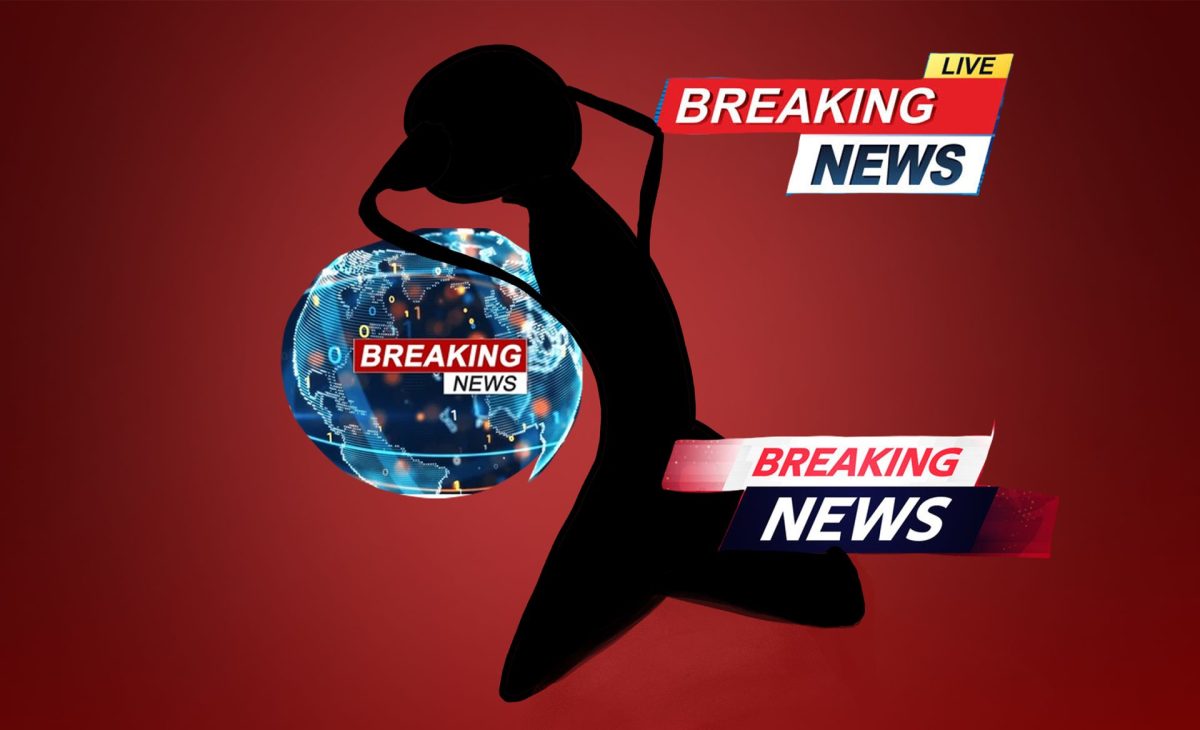It seems like every news day, something terrible happens, and it’s the first thing we all see when we open TikTok for our traditional morning doomscrolling session. I can’t take it anymore. I’m throwing my phone across the room, slamming my laptop shut and touching some grass.
Whether it is genocide, blatant bigotry in politics, the environmental crisis or even the passing of a beloved artist, the news is not just frustrating — it is unavoidable. It feels like constantly being stuck in traffic.
Christopher Bury, senior journalist in residence at DePaul, understands the urge to shut off the news, but he doesn’t think people should do so just because they believe there is nothing that they can do about all the bad news surrounding them.
“It’s challenging in this environment where we’re bombarded with so much social media, opinion and pontification,” Bury said. “I think that the onus is on us as consumers to carefully regulate what we consume.”
Personally, I would hate to live in a bubble secluded from the world around me all the time, but sometimes in the mornings, I make the conscious choice to scroll past bad news. But no matter how hard I try, I see it anyway and it invades my thoughts all day.
I feel like a pawn for politicians who push their political agendas. Everywhere I look, there is something in the news about women and how we’re always losing. For example, Donald Trump issued executive orders to roll back protections for reproductive health care. These orders dismantled the Interagency Task Force on Reproductive Healthcare Access, halted federal efforts to protect patient and provider privacy, and stopped initiatives to ensure emergency abortion care. Yes, I am angry, but I am also ambivalent towards neglecting news just because it affects me negatively.
Bury says that staying away from the news entirely is counterproductive to challenging the root of these stories: the people in power who are leaving many of us feeling powerless.
“In my own generation, when I was in college, we were really upset about the Vietnam War, and we protested on campus, and millions of Americans eventually joined us, and the Vietnam War ended,” Bury said. “We can’t afford to avoid the news. That’s exactly what corrupt people want.”
He’s not wrong. But how much of this am I supposed to take?
It feels suffocating to be bombarded with bad news any time I want to open social media. All I want to see are cute pet videos and I end up feeling drained, anxious and mentally overwhelmed by all of the news that comes across my feed. Every headline makes me feel like I am losing my sense of stability.
And on top of that fun cocktail of emotions, I feel guilty for needing to disconnect.
In an article in Psychology Today, Graham C.L. Davey, a British psychologist and professor, tells readers that negative news can worsen the consumer’s anxiety.
“Research we have conducted also shows that negative news can cause significant mood changes, generating anxiety and depression that subsequently exacerbate the individuals’ own personal worries and anxieties,” Davey wrote.
Jana Simovic, a graduate student studying journalism at DePaul, agrees that bad news “can definitely take a toll on your mental health.” But she also agrees with Bury about the importance of staying informed. She also tries to balance the type of news she consumes.
“There are many beautiful things that are happening in the world, especially in Chicago, that are uplifting and can definitely restore your faith in humanity,” Simovic said. “Focusing on local news can help you think that change is more possible because it is more personal to you rather than looking at something international that is hard to perceive.”
She concedes that that isn’t so easy for everyone to do.
“People haven’t really been doing a great job in the past of reporting on marginalized communities,” Simovic said. “It has been a lot of generalizations and unfair reporting, so I think learning about what resources are inciting positive change in these communities can be really helpful.”
I know I need to keep myself up to date on the world around me. I am a journalism student, after all. However, it is equally important that we recognize the limits of our personal mental health. It is important that we carefully regulate the news we consume, but it is also completely okay to not consume news at all. I am not saying this is a forever kind of thing, but if all you can find yourself thinking about are tariffs and foreign policy, maybe you and the news need a break. In fact, a break might just be what you need to recharge and come back with a way to combat the issues.
You can make a difference without sacrificing your well-being. Take a breath. It will all be okay.
Related Stories:
- Political news overload is hard on students mental health
- The news never sleeps – even when annoying pop-ups block your view
- Some good news this week
Support Student Journalism!
The DePaulia is DePaul University’s award-winning, editorially independent student newspaper. Since 1923, student journalists have produced high-quality, on-the-ground reporting that informs our campus and city.
As the funding model for journalism changes, we rely on reader support more than ever. Your donation helps us fund the reporting that keeps our community informed. Donations are tax deducible through DePaul's giving page. Click the button below to donate.


